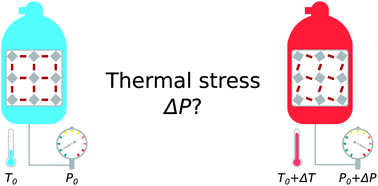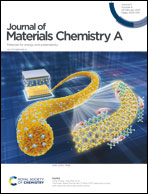Unravelling thermal stress due to thermal expansion mismatch in metal–organic frameworks for methane storage†
Abstract
Thermal stress is present in all systems undergoing temperature changes during their operation. Metal–organic frameworks (MOFs) are a class of porous, crystalline materials ideally suited for a wide range of adsorption-based technologies. The release and consumption of the heat of adsorption instigate temperature fluctuations and thermal stress in these materials that could induce disruptive volume changes. To bring these materials to engineering applications, it is of utmost importance to understand their thermal expansion behavior and the overall induced thermal stress due to thermal expansion mismatch with other components. In this work, we focus on a large group of MOFs known to have promising methane adsorption properties and predict their thermal expansion coefficients based on force field molecular dynamics simulations. Negative thermal expansion (NTE) behavior is predicted for all studied MOFs, and the magnitude of the NTE coefficients is found to be positively correlated with the degree of porosity of the frameworks. Finally, as a proxy for the thermal stress, the thermal pressure coefficient is calculated, which is found to be in the range between polymers and ceramics. Variations within the operating temperature range of MOFs are therefore expected to result in a relatively low thermal stress.



 Please wait while we load your content...
Please wait while we load your content...